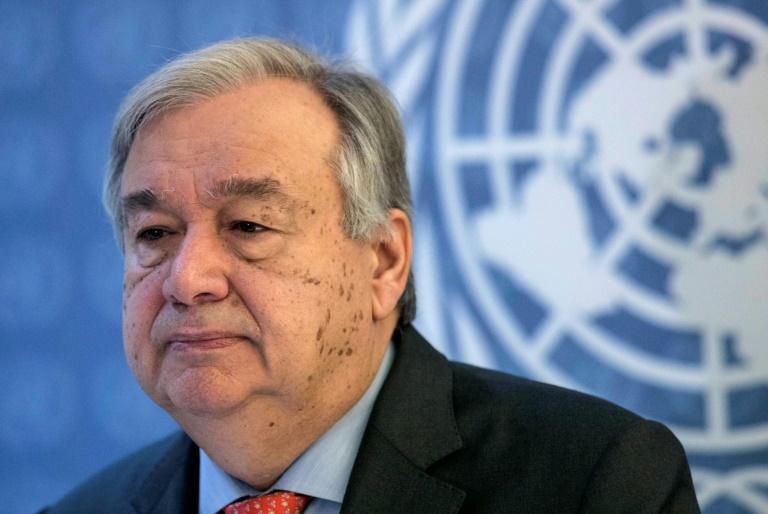About 700 allegedly killed, opposition arrested– How Tanzania's Pres. Hassan secured 2nd term
)
Tanzanian President Samia Suluhu Hassan has been sworn in for a second term under heavy security following a highly contested election marred by deadly protests and widespread allegations of manipulation.
The swearing-in ceremony took place at a military parade ground in Dodoma rather than the usual public stadium, with attendance limited to invited guests but broadcast live on state television. President Hassan was declared the winner with 97.66% of the vote after major opposition figures were either imprisoned or disqualified from the race.
The October 29 election has plunged Tanzania into one of the most turbulent political crises in its recent history. Opposition groups claim that between 700 and 800 people were killed during violent crackdowns on protests, while the United Nations (UN) human rights office confirmed at least 10 fatalities. The government has denied using excessive force and has not released official casualty figures.
Pre-Election Crackdown
)
Months before the polls, opposition activities faced systematic suppression. Main opposition leader Tundu Lissu was arrested in April in Mbinga and charged with treason for calling for electoral reforms. Lissu, who survived a 2017 assassination attempt, spent the campaign period behind bars. Another leading challenger, Luhaga Mpina of the ACT-Wazalendo party, was disqualified in August over alleged procedural irregularities despite favourable court rulings.
Rights organisations, including Amnesty International, documented a surge in enforced disappearances, arbitrary detentions, and killings ahead of the election. In June, UN human rights experts expressed alarm over more than 200 reported disappearances since 2019.
Election Day Violence
)
Protests erupted across several Tanzanian cities during and after voting on October 29, with demonstrators destroying campaign materials and clashing with security forces. Witnesses reported police using live ammunition and tear gas to disperse crowds, while the government imposed a nationwide curfew and restricted internet access. Army Chief Jacob Mkunda labelled the protesters “criminals”.
Chadema, the main opposition party, alleged that “about 700” people were killed in the ensuing clashes, citing data from hospitals and clinics. The UN confirmed at least 10 deaths, while the government dismissed the higher figures as propaganda.
Allegations Against Hassan’s Family
Public anger has also been directed at President Hassan’s son, Abdul Halim Hafidh Ameir, who has been accused by the opposition of coordinating parts of the crackdown on dissent. The accusations have fuelled further outrage, with protesters chanting against perceived dynastic control.
A Flawed System
Analysts say the political crisis highlights deep flaws in Tanzania’s governance structure. Returning officers, often district commissioners, double as government appointees, compromising the independence of the electoral commission. The law also gives the commission final authority on results, making them immune from judicial challenge.
The International Crisis Group reported that President Hassan oversaw “an unprecedented crackdown on political opponents”, including media restrictions and arrests of activists. Online platforms such as X (formerly Twitter) and JamiiForums were either restricted or blocked during the election period.
Generational Resistance
The unrest has also underscored a generational revolt. Most protesters were young Tanzanians under 30, representing a population frustrated by limited economic opportunities despite years of steady growth. With roughly two-thirds of citizens still living in poverty and youth unemployment high, many see political repression as part of a broader failure of governance.
Global Concern

President Hassan’s inauguration on November 3 drew muted international reactions. UN Secretary-General António Guterres expressed concern about reports of deaths and injuries. The foreign ministers of the United Kingdom, Canada, and Norway issued a joint statement urging Tanzania to uphold human rights and democratic principles.
The European Parliament went further, condemning the election as neither free nor fair and calling for the release of Tundu Lissu. “It clearly is not a credible election,” said Alex Vines, Africa Director at the European Council on Foreign Relations, who cited “a campaign of harassment and intimidation” against the opposition.
Tanzania at a Crossroads
As President Hassan begins her second term, she faces a nation divided between fear and frustration. The protests have revealed growing defiance among Tanzania’s youth and eroded public faith in democratic institutions. Whether the president embraces reform and reconciliation or doubles down on repression will determine the country’s political and social trajectory for years to come.
)
)
)

)
)
)
,fit(112:112))
)
,fit(112:112))
,fit(112:112))
,fit(112:112))
)